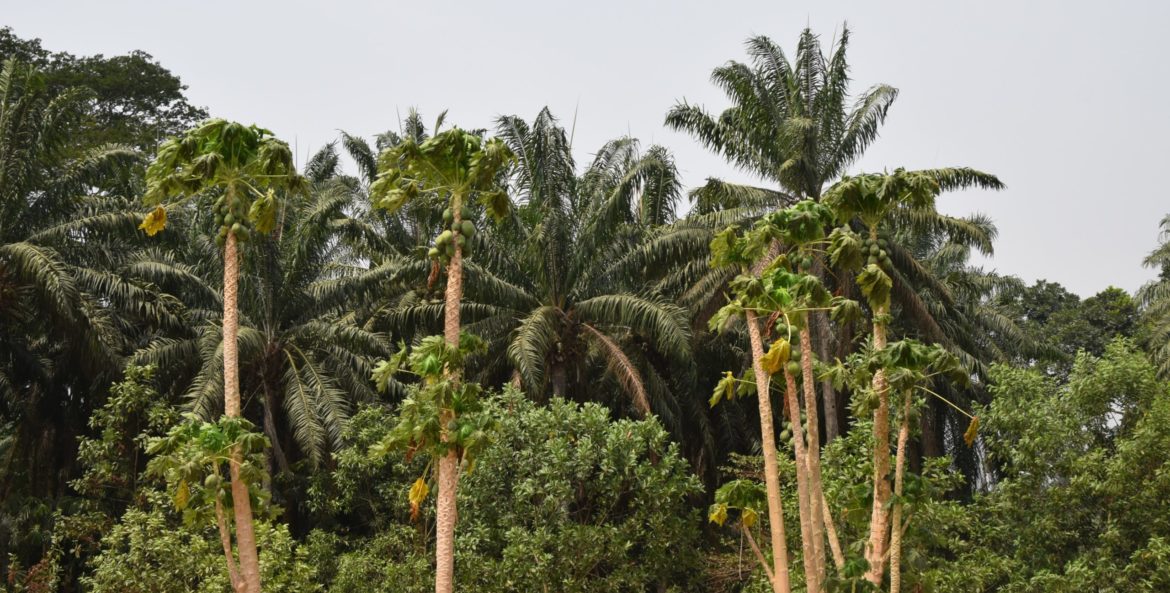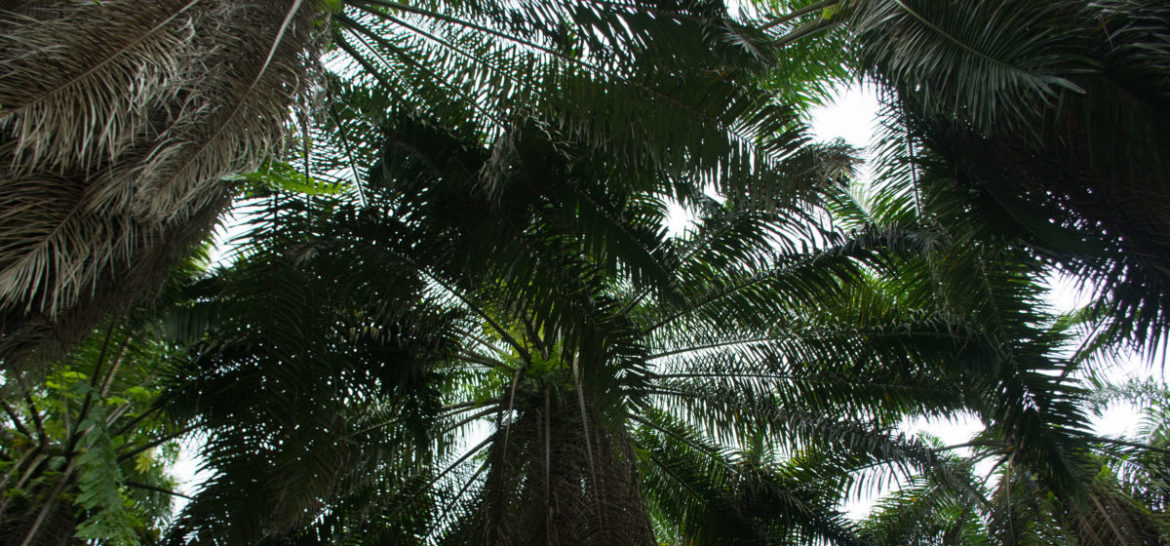At Planting Naturals we understand and appreciate the enormous threat to human and natural systems as a result of anthropogenic climate change. Therefore we continuously monitor and strive to significantly limit our greenhouse gas (GHG) emissions, whilst also contributing to carbon sequestration through indigenous forest protection and organic and regenerative agricultural techniques.
The agricultural industry has come under increasing scrutiny in recent years as a major contributor to GHGs and a high consumer of valuable natural resources such as land and water. At least 20-25% of global GHG emissions can be attributed directly or indirectly (through land-use change) to agriculture (OECD, 2016). Arguably no sector has had to battle with this reckoning more so than palm oil – it is no secret that the crop has suffered a bruising public image of late. Significant tropical deforestation – often through burning – emits huge levels of GHGs into the atmosphere whilst depriving the planet of an irreplaceable carbon sink; a truth that cannot be ignored.
There is also, however, a huge potential: a potential to actually to be a central part of the solution. The key is understanding that sustainability must come from engaging with all areas of our operations. Our smallholder farmers are partners in our positive changes, and we provide the training, materials and support that they need, whilst trusting in their local knowledge of the land. Similarly we trade with those companies that share our values which challenges both parties to commit to doing things to the highest standards.

Why west Africa?
It is clear that oil palm cultivation has devastated natural ecosystems. From the very beginning, our founding principle was a zero tolerance approach to this model of cultivation. This is why Sierra Leone has emerged as an ideal location for growing oil palm. We have built up a network of thousands of local farmers who understand the land and have long been growing high quality, high yielding crop – the location therefore allows for cultivation with the minimum of impact. Meanwhile large areas of lower-density forest make it the perfect environment to practice an agroforestry system. Living and working amongst indigenous forest within which the Elaeis Guineensis palm is one of many native plants to the area. This is key to establishing oil palm cultivation as part of the ecosystem and not merely a monoculture.
HCV & HCS forest protection and regeneration
One of the central elements of RSPO’s rigorous Principles and Criteria is the protection and/or enhancement of High Conservation Value areas – both social and environmental. This means that our farms have gone through comprehensive procedures regarding assessment of all land and every effort is taken to protect indigenous forest – with the support and assistance of local communities. Protecting such forests and regenerating degraded lands preserves the carbon capturing ability of the trees and adds more. We believe that with these plans we can make our entire operations carbon neutral in the coming years.
Organic and regenerative agriculture
In addition to the RSPO standard, we are also organic certified and incorporate regenerative agricultural techniques. Organic prohibits the use of fossil-fuel based inputs like chemical fertilisers and pesticides, thus avoiding emissions during their production and application. At the same time the integrity of the soils are preserved, ensuring a healthy structure and a living, biodiverse ecosystem below the surface. This will maintain the land in the years to come and ensure that the soils remain rich and productive without the need for inputs. As a perennial crop, oil palm lends itself well to regenerative agriculture as it already thrives without the need for tilling and replanting after harvest. As a tree crop it naturally binds the soil and provides shade and nutrients for other vegetation.

On-farm policies
Our climate policy does not only cover forests and ecosystems; we also continue to monitor and evaluate our regular operations to optimise sustainability. This now includes powering our mill from by-products of the milling process, with hopes that excess energy output can be used for additional purposes – possibly as a power source in surrounding villages.
Our on-site mill reduces transportation requirements and the crude palm oil can be shipped directly from West Africa to our refineries in Rotterdam, before travelling onwards to our buyers in Europe. However there is of course still room for improvement – such as switching trucks to clean fuel, minimising wastage (particularly of water during milling), or introducing smart energy policies into our commercial activities – and so we will continue to work with our farm managers and learn from others in the industry in order to continuously develop and innovate.

Aligning with industry-wide changes
Our company journey has been both an exciting and a challenging one, but we are glad to be working closely with organisations looking to change things for the better. We see rigorous certification as the legitimate route to doing things differently. Working with RSPO helps to develop a template for sustainability and an assurance of its integrity. A key part of this has been to incorporate smallholder farmers into the model in order to ensure the highest degrees of sustainability and climate action at the field level, whilst maximising livelihood and development outcomes; now and into the future.

Looking to the future
We firmly believe that this is just beginning of our journey and we will continue to commit our energy and imagination to building not just a sustainable company, but a carbon positive one. The palm oil sector has made some really encouraging strides and we are proud to share in this good news and continue promoting best practices and beyond. It goes without saying that we think the solution to (very real) concerns around palm oil is not to turn our backs on this efficient and versatile crop – one that supports millions of livelihoods worldwide – but rather to make it our absolute priority to prove that it can be produced in harmony with nature and people. That endeavour has already begun and we can’t wait to communicate our progress further.
Written by Jonathon Hunt

